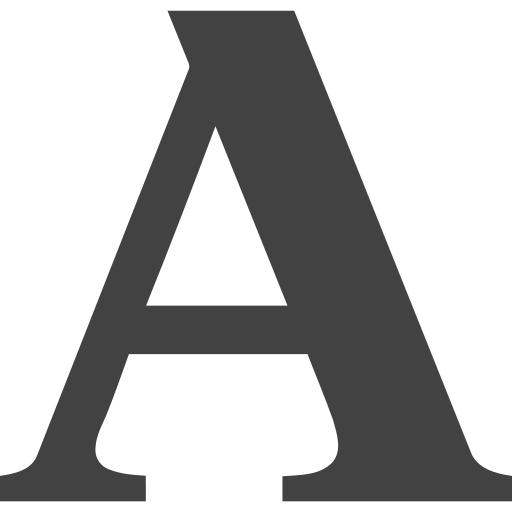Design of a Project of Training in Digital Competitions of the Vulnerable Groups, Mediating Agents in Lifelong Education and MSES-SMES in Aragon (Spain)
DOI:
https://doi.org/10.33732/ixc/10/01DisenoKeywords:
Aragón, vulnerable groups of people, digital competitions, lifelong education, mediation, SME.Abstract
The aim of this paper is to present the design of a project, in its initial phase, whose results will allow us to explain which are the real in terms of digital competence of the citizenship, especially of three strategic sectors, to deepen the study: mediating agents inside the lifelong education, MSEs-SMEs sectors and the vulnerable groups, which need a preferential attention because of the issue of social inclusion. The methodology used in the project, and then in this paper, is going to realize a review of the strategic lines of the summons of the criteria and procedures of selection of operations (SCPO) approved by the Committee of Follow-up of the Operative Program FEDER’s Aragon 2014-2020. The exposition of the project and how it is adapted to the European priority axes of investment convert it into a transferable option to the scientific international community.Metrics
References
AGREDA MONTORO, M.; HINOJO LUCENA, M.A. y SOLA RECHE, J.M. (2016). Diseño y validación de un instrumento para evaluar la competencia digital de los docentes en la Educación Superior española. Píxel-Bit. Revista de Medios y Educación, (49), 39-56. doi.org/10.12795/pixelbit.2016.i49.03
CABERO ALMENARA, J. (2016). La educación a distancia como estrategia de inclusión social y educativa. Revista Mexicana de Bachillerato a Distancia, 8(15) 138-147.
CABERO ALMENARA, J. (2015). Visiones educativas sobre los MOOC. RIED. Revista Iberoamericana de Educación a Distancia, 18(2), 39-60. doi.org/10.5944/ried.18.2.13718
CABERO ALMENARA, J. y RUIZ PALMERO, J. (2017). Las Tecnologías de la Información y Comunicación para la inclusión: reformulando la brecha digital. Ijeri. International Journal of Educational Research and Innovation, 9, 16-30.
CABRERA, J. et al. (2005). Nuevas tecnologías y exclusión social. Un estudio sobre las posibilidades de las TIC en la lucha por la inclusión social en España. Madrid: Fundación Telefónica. Recuperado de: http://www.ohchr.org/Documents/Issues/CulturalRights/ConsultationEnjoyBenefits/UNESCONUEVAS_TECNOLOGIASyExclusionsocial.pdf
CASTAÑEDA, L. y Adell, J. (eds.). (2013). Entornos Personales de Aprendizaje: claves para el ecosistema educativo en red. Alcoy: Marfil.
CEPAL, N.U. (2010). Las TIC para el crecimiento y la igualdad: renovando las estrategias de la sociedad de la información. Recuperado de: http://www.cepal.org/es/publicaciones/2971-tic-crecimiento-la-igualdad-renovando-estrategias-la-sociedad-la-informacion
DURÁN, B.; LÓPEZ, J.F.B.; MARTÍNEZ, J.G. y FLORES, T.G. (2017). Formación en TIC y competencia digital en la docencia en instituciones públicas de educación superior. Apertura, 9(1), 80-96.
FERNÁNDEZ, T. (2010). Trabajo social con casos. Madrid: Alianza.
FERRARI, A. (2013). DIGCOMP: A framework for developing and understanding digital competence in Europe. Luxembourg: Publications Office of the European Union. Joint Research Centre.
GABELAS-BARROSO, J.A.; MARTA-LAZO, C.; INIESTA-ALEMÁN, I. y VARGAS, B. (2018). TRICLab como plataforma de innovación educomunicativa, publicado en Libro de actas CIMIE18 de AMIE licenciado bajo Creative Commons 4.0 International License. Disponible en http://amieedu.org/actascimie18/
GASTÓN, C. y NASER, A. (2012). El desafío hacia el gobierno abierto en la hora de la igualdad. Comisión Económica para América Latina y el Caribe (CEPAL). Recuperado de: http://repositorio.cepal.org/handle/11362/3969?locale-attribute=es
GUTIÉRREZ MARTÍN, A. (2009). Alfabetización digital: algo más que ratones y teclas. Barcelona: Editorial Gedisa.
INTEF (2017). Marco común de competencia digital docente. Recuperado de https://bit.ly/2D2Arua
MARAURI, P.M. (2014). La figura de los facilitadores en los Cursos Online Masivos y Abiertos (COMA/MOOC): nuevo rol profesional para los entornos educativos en abierto. RIED. Revista Iberoamericana de Educación a Distancia, 17(1), 35-67.
MARTA-LAZO, C. y GABELAS BARROSO, J.A. (2016). Comunicación digital. Un modelo basado en el Factor R-Elacional. Barcelona: UOC.
MARTÍN-GARCÍA, M. (2007). Trabajo Social en Gerontología. Madrid: Síntesis.
OSUNA-ACEDO, S. y GIL-QUINTANA, J. (2017). El proyecto europeo ECO. Rompiendo barreras en el acceso al conocimiento. Educación XX1, 20(2), 189-213. doi.org/10.5944/educxx1.19037
OSUNA-ACEDO, S.; MARTA-LAZO, C. y FRAU-MEIGS, D. (2018). From sMOOC to tMOOC, learning towards professional transference. ECO European Project. [De sMOOC a tMOOC, el aprendizaje hacia la transferencia profesional: El proyecto europeo ECO]. Comunicar, 55, 105-114.
doi.org/10.3916/C55-2018-10
PEÑA-LAPEIRA, C. (2015). Las nuevas tecnologías de aprendizaje y su participación en la exclusión social. Cooperativismo y Desarrollo, 23 (107).
REBOLLO CATALÁN, Á.; VICO BOSCH, A. y GARCÍA PÉREZ, R. (2015). El aprendizaje de las mujeres de las redes sociales y su incidencia en la competencia digital. Prisma social, 15, 122-147.
RODRÍGUEZ, J.G. y SÁNCHEZ-RIOFRÍO, A. (2017). TIC y pobreza en América Latina. Íconos-Revista de Ciencias Sociales, (57), 141-160.
RODRÍGUEZ-GARCÍA, A.M. y MARTÍNEZ HEREDIA, N. (2018). La competencia digital en la base de Scopus: un estudio de metaanálisis. Revista de Estudios y Experiencias en Educación (3), 15- 24. doi.org/10.21703/rexe.Especial3_201815241
SAORÍN, J.L.; MEIER, C.; de la TORRE-CANTERO, J.; CARBONELL-CARRERA, C.; MELIÁN-DÍAZ, D. y de LEÓN, A. B. (2017). Competencia Digital: Uso y manejo de modelos 3D tridimensionales digitales e impresos en 3D. EDMETIC, 6(2), 27-46.
SARRATE, M.L. y PÉREZ, M.G. (2011). Las TIC promotoras de la inclusión social. Revista Española de Pedagogía, 249, 237-254.
VÉLEZ, I. (2017). La formación en alfabetización mediática y competencia Digital. Revista Fuentes, 19(2), 15-19. doi.org/10.12795/revistafuentes.2017.19.2.01
Published
How to Cite
Issue
Section
License
Copyright (c) 2020 Begoña Pérez Calle, Carmen Marta-Lazo, Antonia Isabel Nogales Bocio

This work is licensed under a Creative Commons Attribution-NonCommercial 4.0 International License.
Authors who submit to this journal agree to the following terms:
Authors retain copyright and ensure the magazine's right to be the first publication of the work as licensed under a Creative Commons Attribution-NoComercial 4.0 International License that allows others to share the work with an acknowledgment of authorship of the work and the initial publication in this magazine, with no commercial purpose.
Authors can establish separate additional agreements for non-exclusive distribution of the version of the work published in the magazine (for example, to an institutional repository or publish it in a book), with an acknowledgment of its initial publication in this journal.
It allows and authors are encouraged to disseminate their work electronically (eg, in institutional repositories or on their own website) prior to and during the submission process, as it can lead to productive exchanges, as well as a citation more early and most of the published work (See The Effect of Open Access).















